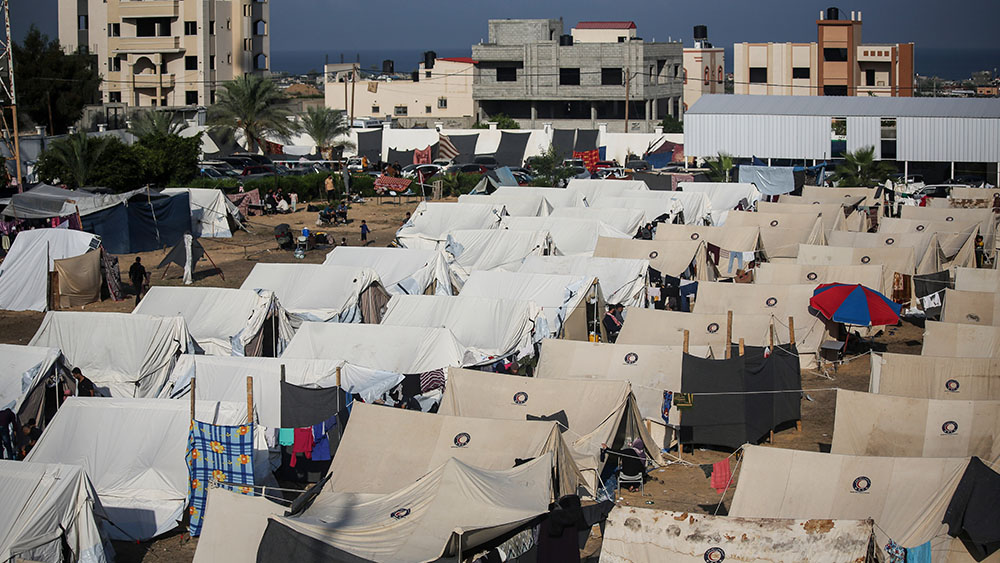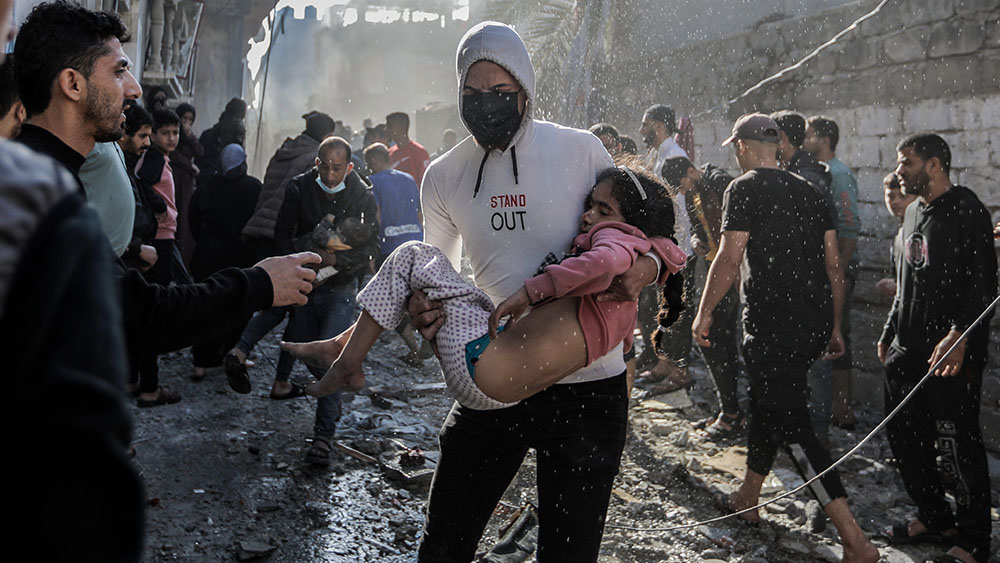 Parler
Parler Gab
Gab
- Israeli Defense Minister Israel Katz announced plans to establish a "humanitarian city" in Rafah, Gaza, aiming to confine over two million Palestinians to a restricted area, with backing from Prime Minister Benjamin Netanyahu.
- The proposal is criticized as a potential concentration camp and a form of ethnic cleansing, raising significant legal and ethical concerns. It includes provisions for "voluntary emigration," which critics argue is a euphemism for forced displacement.
- Eitan Diamond, a senior legal expert, asserts that the plan violates multiple provisions of international humanitarian law (IHL), particularly the Fourth Geneva Convention of 1949, which mandates humane treatment of populations in occupied territories.
- Israeli expert Neve Gordon describes the plan as a "humanitarian concentration camp," highlighting the forced transfer of residents, which is prohibited under international law. Sociologist Martin Shaw calls it an act of genocide, aimed at removing survivors to destroy Palestinian society in Gaza.
- The UN opposes any plans to forcibly displace Palestinians from Gaza. The United States' involvement in discussions adds complexity, with concerns about potential complicity in violations of international law, given its historical alliance with Israel.
Netanyahu's role and international reactions
Netanyahu's support for the plan has been confirmed by sources speaking to Haaretz. The plan is seen as a short-term solution, with Netanyahu hoping that countries like Saudi Arabia and the UAE will eventually take over control, thereby legitimizing the intervention and avoiding accusations of collaboration with Israel. However, there is no evidence that these countries have expressed any desire to be involved. The UN has firmly opposed any plans to forcibly displace Palestinians from Gaza, reiterating its commitment to the rights of the Palestinian people. The involvement of the United States in the dialogue surrounding the plan adds another layer of complexity. Sources indicate that U.S. officials have been engaged in discussions with Israeli counterparts, raising concerns about the potential complicity of the U.S. in any violations of international law. The U.S. has historically been a key ally of Israel, and its role in the current situation will be closely watched by the international community. The outcome of discussions between U.S. and Israeli officials could have significant implications for the future of Gaza and the Palestinian people. Watch the video below that talks about Trump's warning to Hamas in connection with the ceasefire proposal. This video is from the TrendingNews channel on Brighteon.com.More related stories:
Trump puts "heavy pressure" on Netanyahu to end Gaza war as ceasefire talks stall. EU to propose sanctions against Israel over Gaza human rights concerns. More than 300 KILLED in 48 hours as Israel's assault on Gaza Strip continues.Sources include:
MiddleEastEye.net Haaretz.com Brighteon.comUnited Kingdom mulls ban on using crypto for POLITICAL DONATIONS
By Ramon Tomey // Share
U.K. Reddit users now required to verify their age under new Online Safety Act
By Laura Harris // Share
Holocaust scholar Omer Bartov: Israel is committing GENOCIDE in Gaza
By Laura Harris // Share
Trump says he has no plans to fire Fed Chair Powell
By Laura Harris // Share
Governments continue to obscure COVID-19 vaccine data amid rising concerns over excess deaths
By patricklewis // Share
Tech giant Microsoft backs EXTINCTION with its support of carbon capture programs
By ramontomeydw // Share
Germany to resume arms exports to Israel despite repeated ceasefire violations
By isabelle // Share










